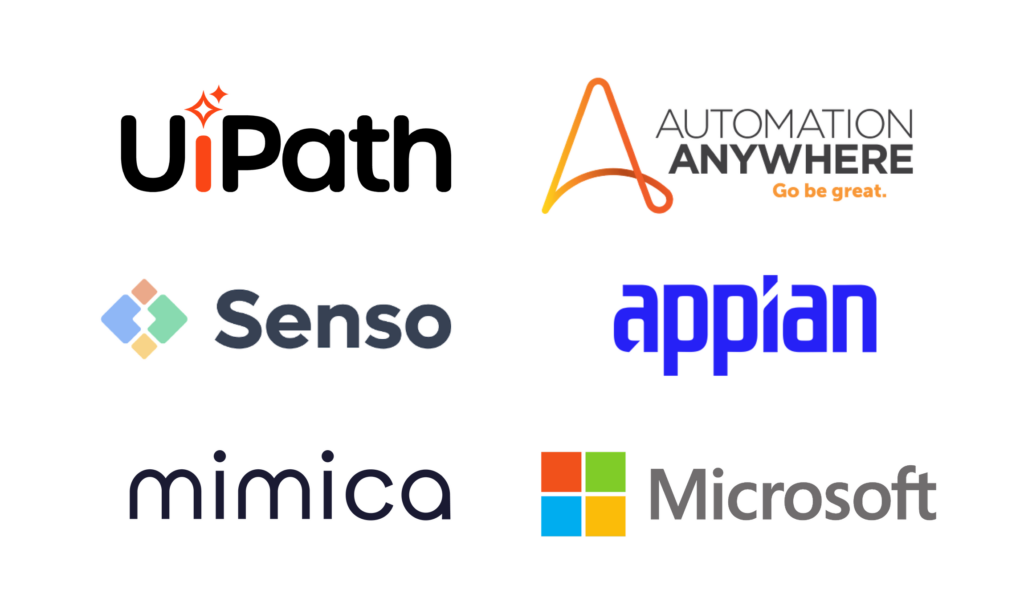Solutions / By Technology / Agentic AI
AGENTIC AI
Empowering AI agents to act with autonomy, intelligence, and intent. That’s the next generation of enterprise automation.

FEWER INSTRUCTIONS, FASTER ACTION
AI agents take the wheel. No micromanagement needed.
Agentic AI & Agentic Automation: Explained
WHAT IS AGENTIC AI & AUTOMATION?
Agentic AI is a smarter form of artificial intelligence that enables AI agents to think, decide, and act based on their environment without relying on fixed rules. These agents adapt in real time, learn from experience, and improve through feedback, making them ideal for fast-changing conditions.
Agentic automation is how organizations put this intelligence into action. It applies AI agents to real-world workflows, introducing autonomy, flexibility, and decision-making beyond scripted automation.
If Agentic AI is the brain, agentic automation is the body—turning smart decisions into smart actions.
THE POWER OF AI AGENTS
AUTONOMY
AI agents make decisions and take action without being explicitly programmed for every scenario.
CONTEXT-AWARENESS
They analyze real-time data, understand objectives, and adjust their strategies based on new inputs.
COLLABORATIVE INTELLIGENCE
Agents can work together—or alongside humans—sharing knowledge, orchestrating tasks, and learning from outcomes.
CONTINUOUS LEARNING
Through reinforcement learning and real-world feedback, AI agents improve performance over time.
AI Agents: How Do They Work?
- Define Goals
AI agents start with a clear objective, like reducing response times or improving how tasks are routed. - Perceive the Environment
They gather and interpret information from systems, documents, conversations, or how people interact with tools. - Make Decisions
Agents look at the available options, run scenarios, or use trained models to figure out the best next step. - Take Action
They carry out tasks or coordinate with other systems, keeping track of results and adjusting as needed. - Learn and Improve
Each time they run a process, they learn a bit more, fine-tuning their approach and getting better over time.

how to use it
AGENTIC AI IN FINANCE & ACCOUNTING
- Account Reconciliation
- Fraud Detection & Prevention
- Real-Time Financial Analysis
- Budgeting & Forecasting
- Invoice Processing
AGENTIC AI IN HUMAN RESOURCES
- Recruitment & Screening
- Performance Evaluations
- Onboarding & Training
- Workforce Planning
- Compliance Monitoring
AGENTIC AI IN QUALITY ASSURANCE
- Anomaly Detection
- Testing
- Root Cause Analysis
- Compliance Audits
- Quality Management
AGENTIC AI IN CONTACT CENTER
- Customer Support
- Sentiment Analysis
- Issue Resolution & Escalation
- Customer Interactions
- Call Routing
AGENTIC AI IN SUPPLY CHAIN
- Order Processing
- Demand Forecasting
- Supplier Management
- Risk Identification
- Logistics Planning
AGENTIC AI IN SALES & MARKETING
- Lead Scoring
- Content Personalization
- Campaign Management
- Competitive Analysis
- Pricing & Promotions
AGENTIC AI IN INFORMATION TECHNOLOGY
- Incident Resolution
- Infrastructure Maintenance
- Threat Detection & Response
- IT Operations
- Network Optimization
Agentic AI / Agentic Automation / AI Agents
FAQs
What’s the difference between agentic AI and traditional AI?
Traditional AI models are reactive, making predictions based on data. Agentic AI is proactive: AI agents set goals, make decisions, take action, and learn from outcomes.
How does an AI agent differ from an RPA bot?
RPA bots typically follow scripts or rules. AI agents operate with autonomy and context-awareness, adjusting their behavior based on new information or changing objectives.
Is agentic AI safe and controllable?
Yes, with proper design and governance. Human oversight is critical in defining constraints, monitoring performance, and ensuring alignment with business and ethical standards.
Where should I start with agentic AI?
Begin with a strategic use case that involves high variability, data-rich environments, or cross-functional workflows. We recommend starting small with well-scoped pilots.
Do AI agents replace existing RPA bots?
Not necessarily. AI agents can complement existing RPA bots or extend their capabilities. They are often introduced to handle more complex, context-dependent work that traditional RPA bots cannot manage. They work together!
What are the risks associated with agentic automation?
Risks include bias in decision models, lack of transparency, and insufficient oversight. These can be mitigated with proper governance, testing, and human-in-the-loop strategies.
Our Partners
SOME PARTNERS THAT SUPPORT THIS TECHNOLOGY
You’ve chosen to embark on your agentic journey; now you need the right provider. We partner with industry-leading solutions like UiPath, Automation Anywhere, and Microsoft to offer you the best agentic AI and agentic automation solutions. Explore our partners to find the perfect fit for your needs.

ready to get
started?
We help organizations explore, design, and deploy AI agents that align with their strategic goals.
Whether you’re looking to pilot agentic automation or integrate AI agents into enterprise-wide processes, we combine deep technical expertise with a focus on human-centered implementation.
"*" indicates required fields
Solutions
Explore other technologies

Agentic AI

Low-Code Development

Test Automation

Process Orchestration











